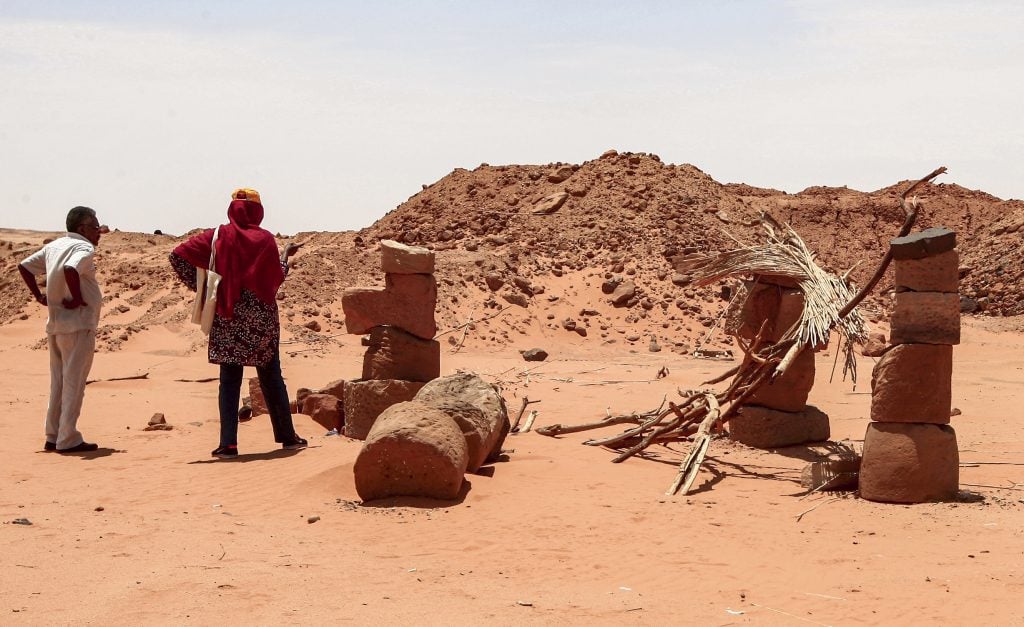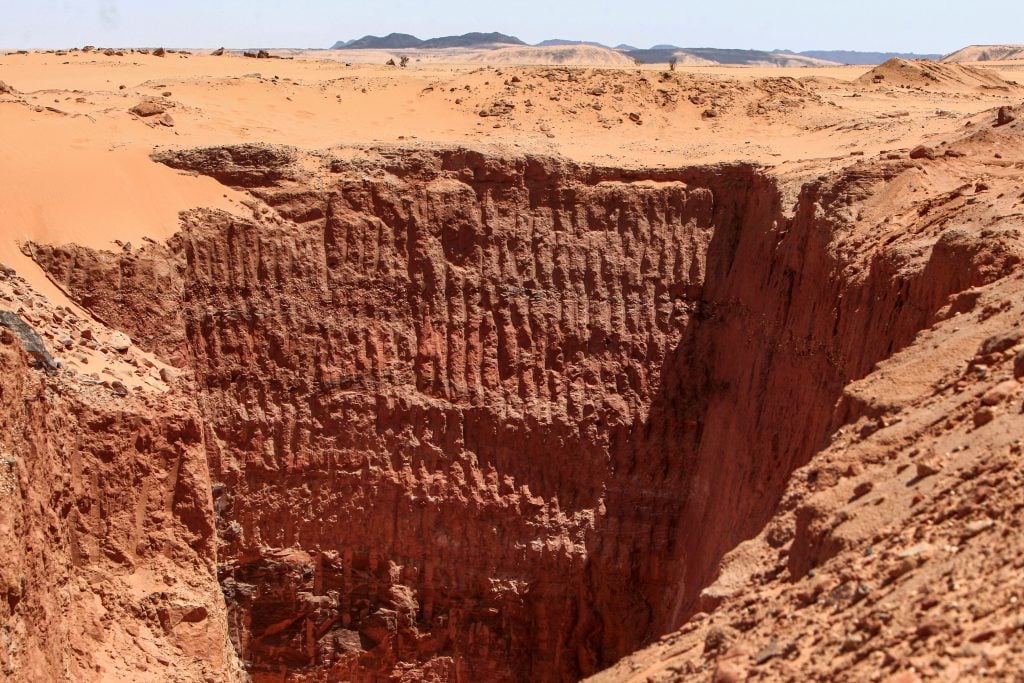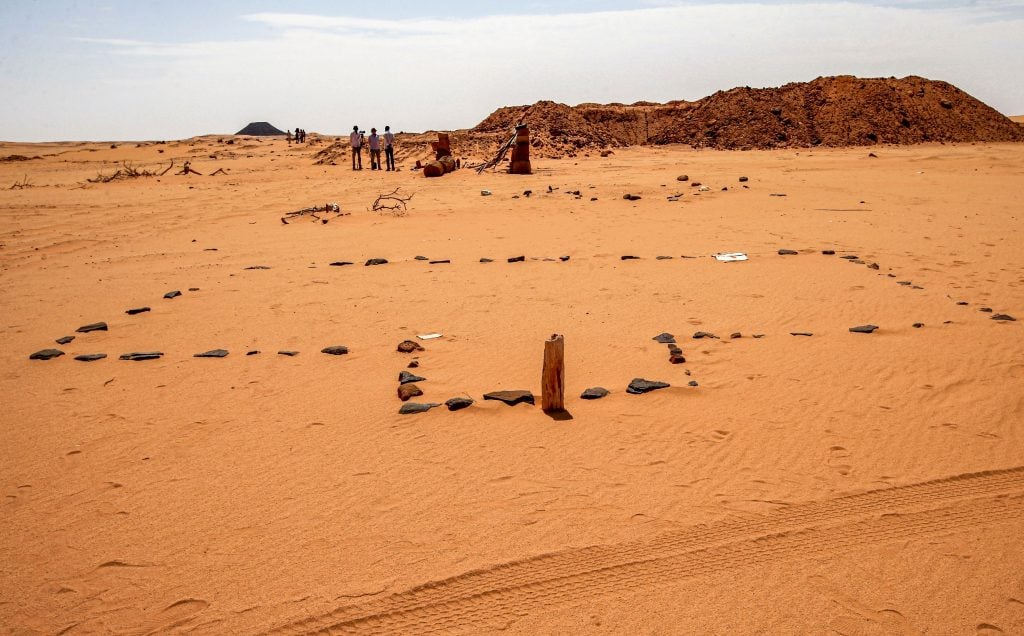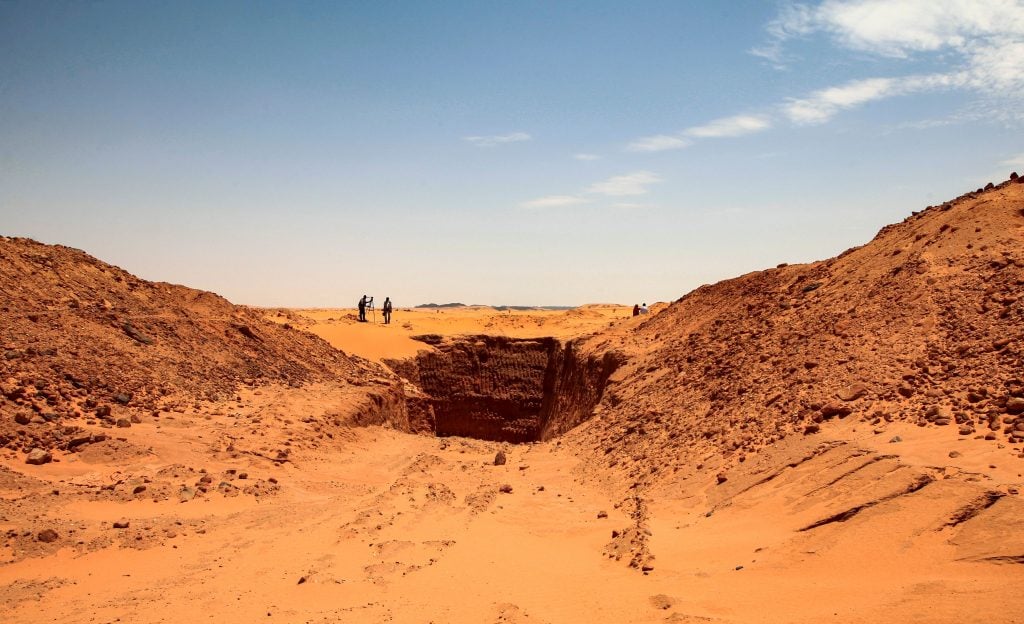Art World
A Band of Illegal Gold Miners Have Completely Destroyed an Ancient Kush Settlement in Sudan
Archaeologists found the excavation site unrecognizable.

Archaeologists found the excavation site unrecognizable.

Sarah Cascone

Jabal Maragha, an ancient archaeological site in Sudan, is no more. Gold hunters, digging illegally, have destroyed the historic landmark, erasing nearly every trace of what was a small settlement or checkpoint dating to the Kingdom of Kush’s Meroitic period, from 350 BC to 350 AD.
The industrial-scale act of looting was discovered by a team of archaeologists who arrived at the site and were shocked to find it all but unrecognizable. They confronted the treasure hunters, who were still working with the two drilling machines they had used to dig a massive hole in the ground—65 feet by 55 feet across.
“They had completely excavated it, because the ground is composed of layers of sandstone and pyrite,” Hatem al-Nour, Sudan’s director of antiquities and museums, told Agence France Presse, noting that the metallic rock would have set off the diggers’ metal detectors.

A vast trench dug by gold hunters at Jabal Maragha, in the desert of Bayouda, some 170 miles north of the Sudanese capital. Photo by Ebrahim Hamid/AFP/Getty Images.
The men had also stacked ancient cylindrical stones to create chairs and tables for a makeshift dining area while they dug. Smaller stones marked a temporary mosque.
Sudan is known for its gold production, excavating $1.2 billion of the precious metal in 2019, third on the African continent behind South Africa and Ghana.
Jabal Maragha is about 170 miles north of Khartoum, Sudan’s capital, in the Bayuda Desert. Historically, it was part of the Kingdom of Kush, which ruled over what was then known as Nubia, a civilization to the south of ancient Egypt.

A makeshift mosque, consisting of stones lined up by gold hunters. Photo by Ebrahim Hamid/AFP/Getty Images.
Before the gold diggers struck, “it was a quiet and beautiful site, never touched by anyone,” archaeologist Habab Idriss Ahmed, who had worked on excavations at Jabal Maragha for a month, told Africa News.
“This site is a rare site that contained a lot of useful information for research on the history of Sudan,” added al-Nour.
The destruction of Jabal Maragha is part of a wider problem in the nation, al-Nour told the BBC.
“Out of a thousand more or less well-known sites in Sudan, at least a hundred have been destroyed or damaged,” he said.

A vast trench dug by gold hunters is pictured at Jabal Maragha. Photo by Ebrahim Hamid/AFP/Getty Images.
The men who destroyed Jabal Maragha have gone unpunished, despite having been caught in the act. The archaeologists’ police escorts took the gold diggers into custody, but they were released within hours, along with their equipment, without being charged.
Mahmoud al-Tayeb, a former expert from Sudan’s antiquities department, told AFP that corruption was to blame for the lack law enforcement.
“They should have been put in jail and their machines confiscated. There are laws,” he said. “It is the saddest thing.”